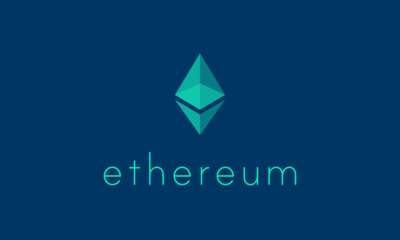In a recent interview, SEC Commissioner Hester Peirce talked about whether or not a single regulator would be a solution for the industry. A notable advocate for the SEC providing a regulatory framework, she balked at the idea of a one-stop shop, preferring a framework built from conversation with the industry. She further noted that NFTs were gathering interest from the SEC.
“I think that her commentary on NFTs begs the question: will the SEC be looking harder at the digital assets custody sector? Right now, it is still maturing, but there are already some major security concerns. As the SEC begins to look at the best way to move forward with digital assets in 2022, I think they’re going to have to deal with the looming custody issues,” said Richard Gardner, CEO of Modulus, a US-based developer of ultra-high-performance trading and surveillance technology that powers global equities, derivatives, and digital asset exchanges.
Fireblocks, which is among the best known custody providers, found itself embroiled in a lawsuit with StakeHound, which alleges the custody company lost roughly $70MM of Ethereum, after the key vanished. As a result, StakeHound could not access over 38,000 ETH.
“Custody, moving forward, is going to be a major concern, and a lot of folks aren’t talking about it yet. But, I was way ahead of the curve when talking about the need for regulation to stop money laundering and malfeasance from bad actors, such as hackers, too. Right now, it is the time to take a hard look at the situation within the custody arena,” opined Gardner.
“What we’ve done… is we’ve brought one-off enforcement actions… I’m just hopeful that we set our minds to work at building something that makes sense in terms of regulatory clarity, instead of always just falling back on enforcement,” Peirce said in the interview. In another segment, she continued to say, “Given the breadth of the NFT landscape, certain pieces of it might fall within our jurisdiction… people need to be thinking about potential places where NFTs might run into the securities regulatory regime.”
“I think that what she says about the NFT landscape can certainly also be said of the custody landscape. Right now, there is a lot of room for improvement in the security mechanism. With digital assets, custody isn’t simply an administrative function. There’s more to it, particularly as it relates to ensuring that assets are safe from malfeasance and chicanery, whether by solo hackers or rogue nation states wishing to do harm to the financial system,” said Gardner.
Modulus is known throughout the financial technology segment as a leader in the development of ultra-high frequency trading systems and blockchain technologies. Modulus has provided its exchange solution to some of the industry’s most profitable digital asset exchanges, including a well-known multi-billion-dollar cryptocurrency exchange. Over the past twenty years, the company has built technology for the world’s most notable institutions, with a client list which includes NASA, NASDAQ, Goldman Sachs, Merrill Lynch, JP Morgan Chase, Bank of America, Barclays, Siemens, Shell, Yahoo!, Microsoft, Cornell University, and the University of Chicago.
“The industry, as a whole, needs competent leadership out of the regulatory bodies which are tasked with overseeing them. And, the best way to do that, is like the commissioner says — inviting the industry in, working with them to create a commonsense rulebook. It also should be done in a comprehensive way, an encompassing look at all pieces of digital assets. From stablecoins to custody and beyond,” said Gardner.


 Forex3 weeks ago
Forex3 weeks ago


 Naira2 weeks ago
Naira2 weeks ago
 Billionaire Watch2 weeks ago
Billionaire Watch2 weeks ago




 Naira2 weeks ago
Naira2 weeks ago




 Naira2 weeks ago
Naira2 weeks ago




 Naira1 week ago
Naira1 week ago




 Naira4 weeks ago
Naira4 weeks ago




 Naira3 weeks ago
Naira3 weeks ago





















